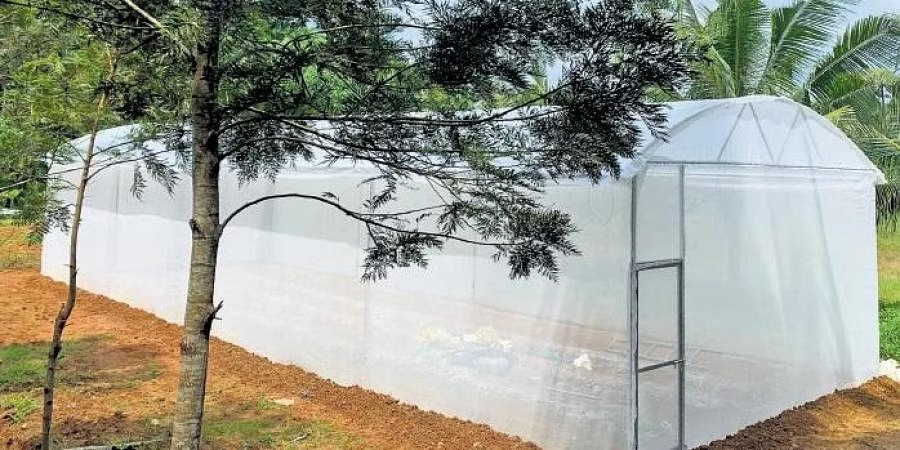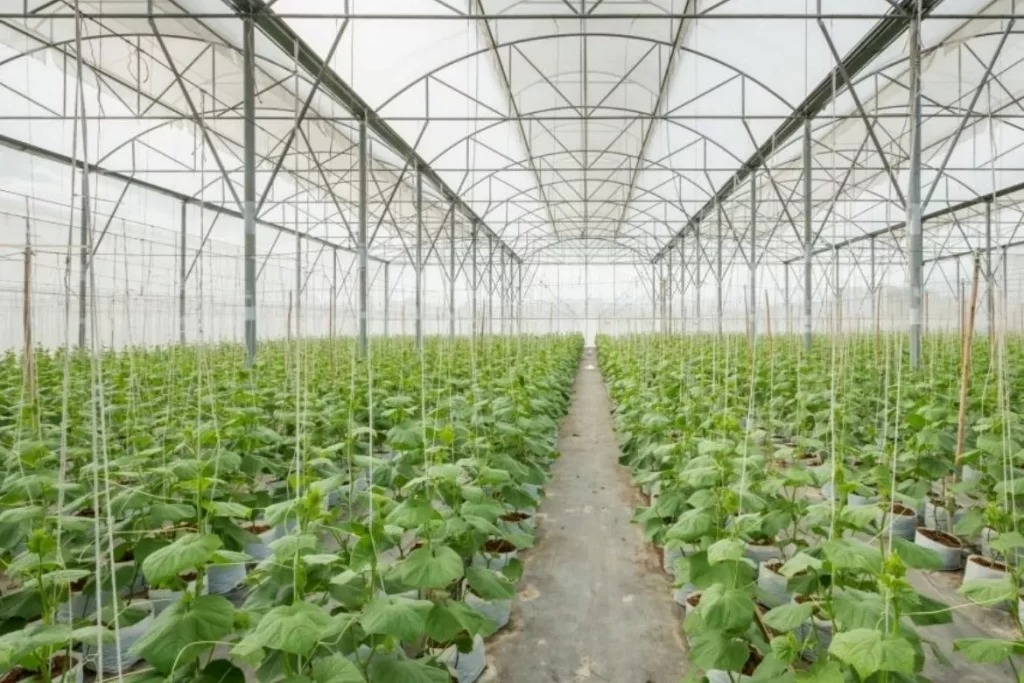Polyhouse farming, also known as polytunnel farming or hoop house farming, is a type of greenhouse farming that utilizes structures made of polyethylene or other plastic materials to create a controlled environment for plant growth. Polyhouses are similar to traditional greenhouses but are typically more affordable and easier to construct. Key features and benefits of polyhouse farming: Affordability: Polyhouses are generally less expensive to build and maintain compared to conventional glass or rigid plastic greenhouses, making them a more accessible option for small and medium-scale farmers. Climate Control: Similar to traditional greenhouses, polyhouses allow farmers to regulate temperature, humidity, light, and ventilation, providing an optimal environment for crop growth. This control extends the growing season and enables year-round cultivation. Crop Protection: Polyhouses act as a barrier against pests, diseases, and adverse weather conditions, safeguarding crops and reducing the need for chemical pesticides. Water Conservation: Polyhouse farming often employs efficient irrigation systems like drip irrigation, which helps conserve water compared to open-field farming. Enhanced Yields: By maintaining ideal growing conditions, polyhouses can significantly increase crop yields compared to traditional farming methods. Crop Diversity: Polyhouses facilitate the cultivation of a wide range of crops, including vegetables, flowers, fruits, and herbs, regardless of the external climate. Space Efficiency: Polyhouses can be constructed in various sizes and shapes, including tunnels, arches, and multi-span structures, allowing farmers to make the most of available land and resources. Protection from Extreme Weather: Polyhouses provide a buffer against extreme weather events like heavy rain, hail, and frost, minimizing crop damage and ensuring a more stable yield. Quality Produce: The controlled environment in polyhouses often results in higher-quality produce with uniform appearance and reduced susceptibility to external factors. Suitable for Organic Farming: The controlled environment of polyhouses makes them suitable for organic farming practices, as they reduce the exposure of crops to external pollutants and contaminants. Extended Shelf Life: Certain crops grown in polyhouses may have an extended shelf life due to reduced exposure to pests and diseases. Polyhouse farming has gained popularity worldwide as it offers an efficient and cost-effective way to improve agricultural productivity and overcome challenges related to climate variability. It allows farmers to have better control over crop production, ensures food security, and reduces the environmental impact of agriculture by optimizing resource use and minimizing chemical inputs. Like any farming method, successful polyhouse farming requires proper planning, appropriate crop selection, and effective management of the controlled environment to achieve optimal results.


